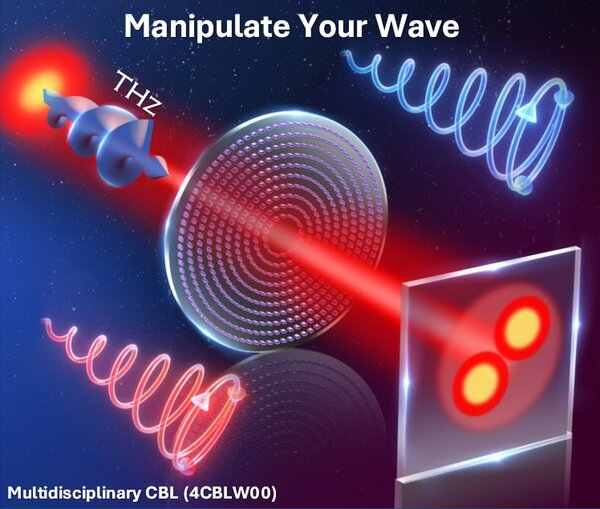| 13. Manipulate your wave | |
|---|---|
Offered by | EE and AP |
Available in timeslot | D |
Target student major |
|
Preferred entrance knowledge / skills | Prior knowledge/experience in one or more of the following areas: THz, wave propagation, communications, Electromagnetic 1 (5EF0), and technology fabrication is a plus. |
Student capacity | 120 |
Group size | 6 |
Contact person | Shihab Al-Daffaie, s.al-daffaie@tue.nl |
Project description
Terahertz (THz) technology has gained significant attention due to its applications in non-destructive imaging, communications, spectroscopic detection, and sensing. Traditional THz devices require thick materials to achieve the desired wave-manipulating functions, hindering the development of integrated systems. Waveplates and phase retarders are essential for controlling the polarization state and phase of electromagnetic (EM) waves. Conventional methods for controlling phase and polarization rely on natural birefringent materials, which support different phase delays along orthogonal optical axes. Low loss, THz transparent materials like silicon and polymers like HDPE and Teflon are isotropic and have no natural birefringence. Metasurfaces, consisting of subwavelength planar microstructures with pre-designed optical responses, can manipulate EM waves at frequencies ranging from the microwave to the visible. As an evolution of 3D metamaterials in 2D geometries, metasurfaces can achieve intricate manipulations of EM waves that are difficult to achieve using conventional techniques, while overcoming limitations such as bulky sizes, high profiles, and difficult fabrication.
The proposed challenge is to improve the THz operational bandwidth and achieve π-phase retardation by designing, fabricating and characterizing different types of subwavelength structures based on metamaterials, waveplates, multi-layer designs, and artificial birefringence, by creating complex subwavelength structures, aperiodic gradient gratings or Fresnel rhomb waveplates.
